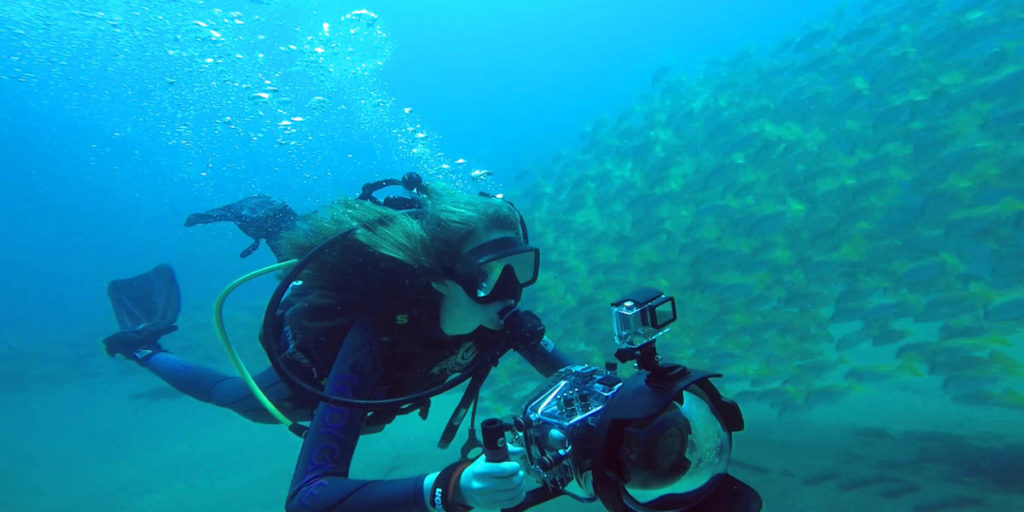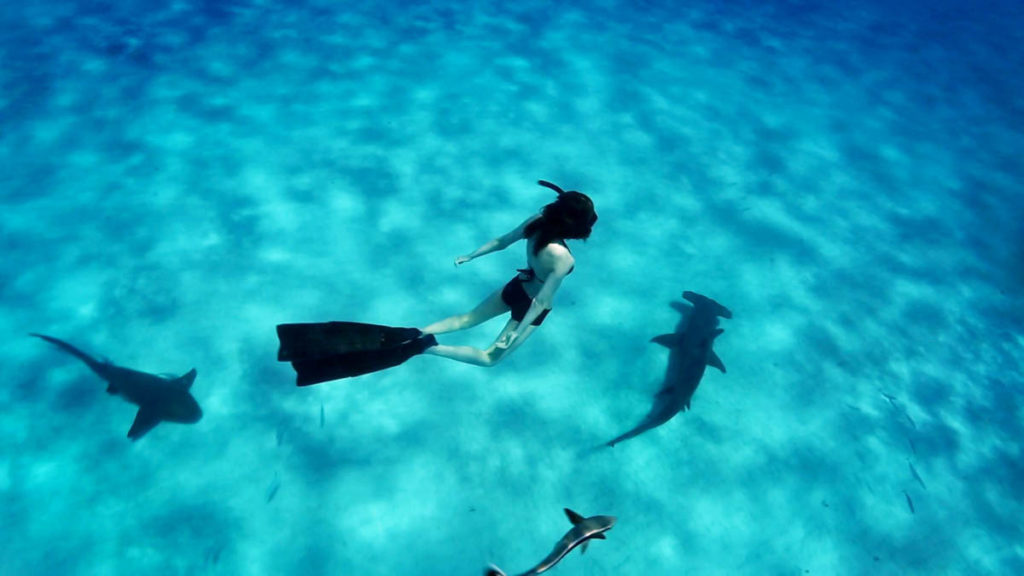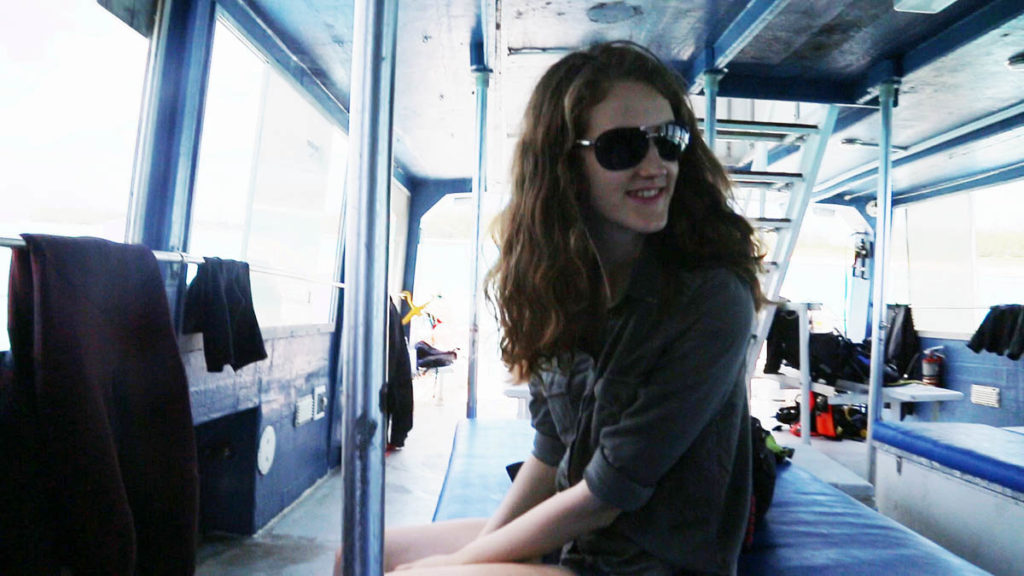I didn’t set out to become a filmmaker or a diver, but when I watched Rob Stewart’s documentary Revolution, my life changed completely. Learning that the world’s coral reefs, rainforests, and fish are predicted to be wiped out within my lifetime was a wakeup call to the necessity of changing the world.
From the moment I left the theater I knew I could not sit back and watch the destruction of life on earth continue. I needed to intervene.
There was no time to wait. I was 16 years old and within a week I decide I was going to make a documentary to show people what’s happening to the ocean. I believed that if more people understood how important the ocean is, and how much trouble it’s in, they would want to fight for it.
The first step was buying a camera and signing up for a scuba diving course.
Soon, I found myself on a boat heading out to a reef in Key Largo to do my first dive in the ocean. My heart was racing. The idea of scuba diving terrified me, but I knew if I was going to make a movie about the ocean I would have to go underwater.
Forcing myself to jump off the back of the boat was difficult, but it turned out to be one of the best things I’ve ever done. I took a few breaths through the regulator, looked around at this world full of life and color, and I fell in love. On that dive I met two sharks, a sea turtle, a massive sting ray, christmas tree worms, and fish of all sorts and varieties. The reef was the most beautiful thing I had ever seen.

While I was in Florida, I interviewed scientists who were studying ocean acidification and its effects on coral. I learned that coral reefs are the most biologically diverse ecosystem on the planet, that they support 30% of all species in the ocean, and that they’re in big trouble.
Much of the carbon dioxide we release into the atmosphere gets absorbed by the ocean and reacts with water to form a dilute acid. Since the beginning of the industrial revolution humans have release 4 quadrillion pounds of CO2 and the ocean has become 30% more acidic.
In an increasingly acidic ocean, organisms who build shells and skeletons can’t form. This affects fish, coral reefs, and the plankton who produce 70% of earth’s oxygen.
What’s most alarming is the rate at which this is happening. The ocean is going acidic faster than in extinctions of the past. When change happens this quickly, species can’t adapt to it.

It is predicted that if ocean acidification continues, we will lose all the world’s coral reefs by 2048.
4 of the 5 mass extinction the planet’s had were attributed to ocean acidification.
To figure out how we’re going to avert this catastrophe, I followed the mainstream environmental movement as it begged for action from governments. I marched through New York City with 400,000 people demanding a reduction in carbon emissions. I stood outside the conference center at COP21 in Paris with hundreds of youth, singing and chanting.
For the first time in the history of COP conferences, governments came to an agreement to reduce emissions of CO2. People celebrated in the streets. But the agreement didn’t take into account the conditions that are necessary for life to continue in the ocean.
After interviewing top coral scientists in Australia, I learned that the targets set out in the Paris agreement are not enough to stop ocean acidification or save coral reefs.
With so much at stake, and with the response from governments being utterly insufficient, the responsibility to act falls on those of us who care, those who are willing to do what it takes to protect life.
It’s not hard to see how to save the ocean. We know which industries are causing the problems. We know which actions must be stopped.
We have the opportunity to turn things around, but we have to do something fast.

Julia Barnes is the award-winning filmmaker behind Sea of Life. For as long as she can remember Julia has been passionate about the natural world. At age 16 she picked up a camera and began raising awareness about the threats facing the ocean.





